Once spring starts to bloom, the longer, sunnier days and reinvigorated life in your garden may inspire your whole family to enjoy the outdoors.
But before you host an Easter celebration, invite friends over for a weekend barbecue, or simply enjoy after-school playtime with your children, ensure your backyard is ready for entertaining by following these basic safety tips.
Eliminate hazards
Do a clean sweep of the grounds to identify immediate dangers, such as holes in your lawn, stray gardening equipment, exposed nails or screws (including in piles of plywood, which may have fasteners), and sharp surfaces like rusted downspouts. Also check for uneven concrete or loose pavers, which can cause tripping, and inspect your deck for any soft areas that may be unstable. These hazards could injure rowdy kids or pets at play, so take care of what you can and hire a contractor to fix what you cannot.
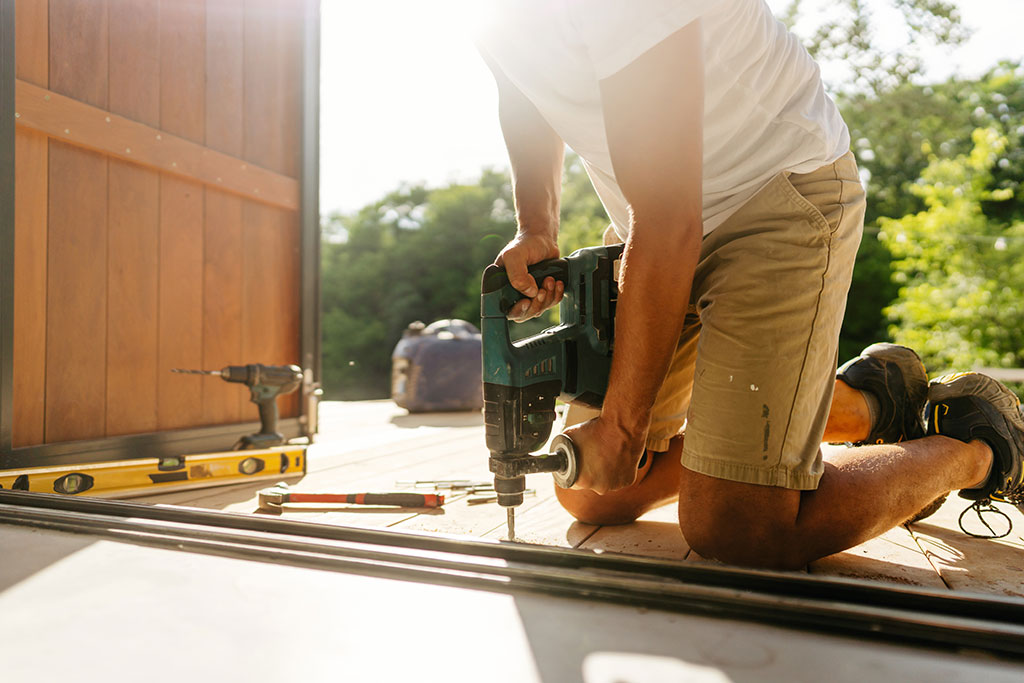
Stay organized
While it may feel convenient to simply toss your shovel or shears aside and head indoors after some tiring yard care, putting these items away is an essential safety step; they may have sharp edges or chemicals that are incredibly dangerous to children. Store all home-improvement tools and yard-care equipment in a shed or closet, and keep the door locked at all times.
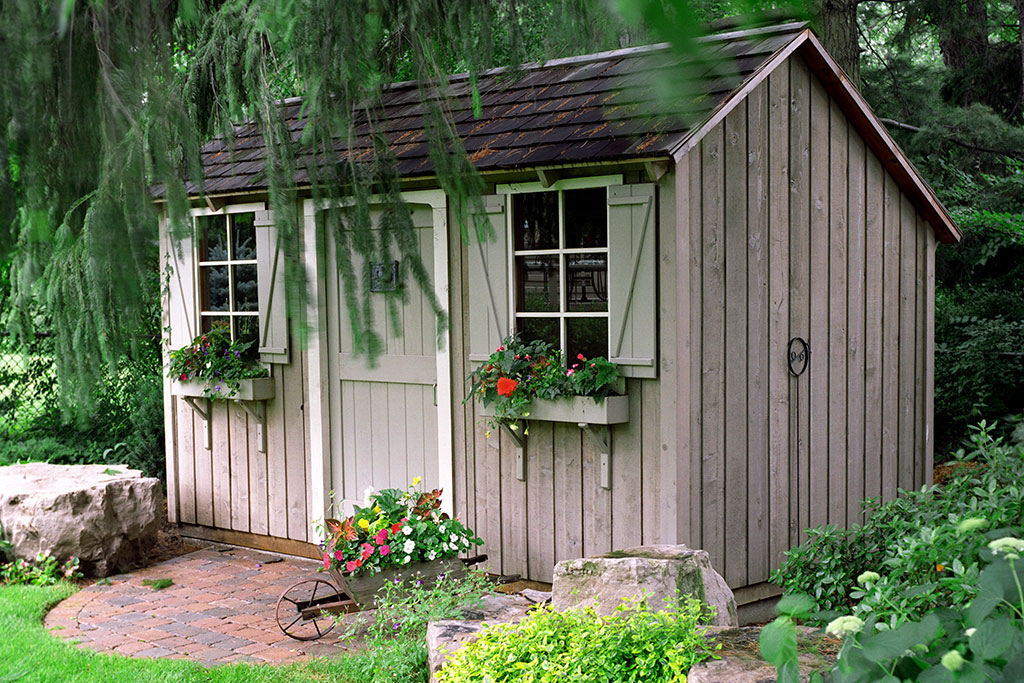
Evaluate equipment
Inspect all outdoor furniture and play sets for signs of wear or damage. Remove broken products, and repair any loose parts, hiring a handyperson to do so as necessary. Metal surfaces such as railings and slides can also become extremely hot in direct sun, so drape them with protective coverings when not in use or replace them with heat-resistant alternatives.
Inspect for invaders
Pests aren’t just unappealing; they can also make your backyard unsafe, given the array of stingers, teeth, and illnesses they may wield. Keep an eye out for animal droppings on the grounds, which could be a sign of vermin, and use the handle end of a shovel to search toys and play furniture for covert critters. If you’re comfortable doing so, carefully eliminate fire ant mounds, wasp nests, and low spiderwebs. For more hazardous pest problems, however, you’ll want to hire an exterminator to take them out, preferably with safer organic repellents.
To keep your premises pest-free, always store pet food in secure containers and throw out uneaten food scraps right away. If you store your trash and recycling bins in your backyard, make sure to keep the lids fully closed at all times. You should also eliminate water that collects in items like pots and buckets—standing water acts as a breeding ground for mosquitoes and may attract thirsty rodents like mice or rats.
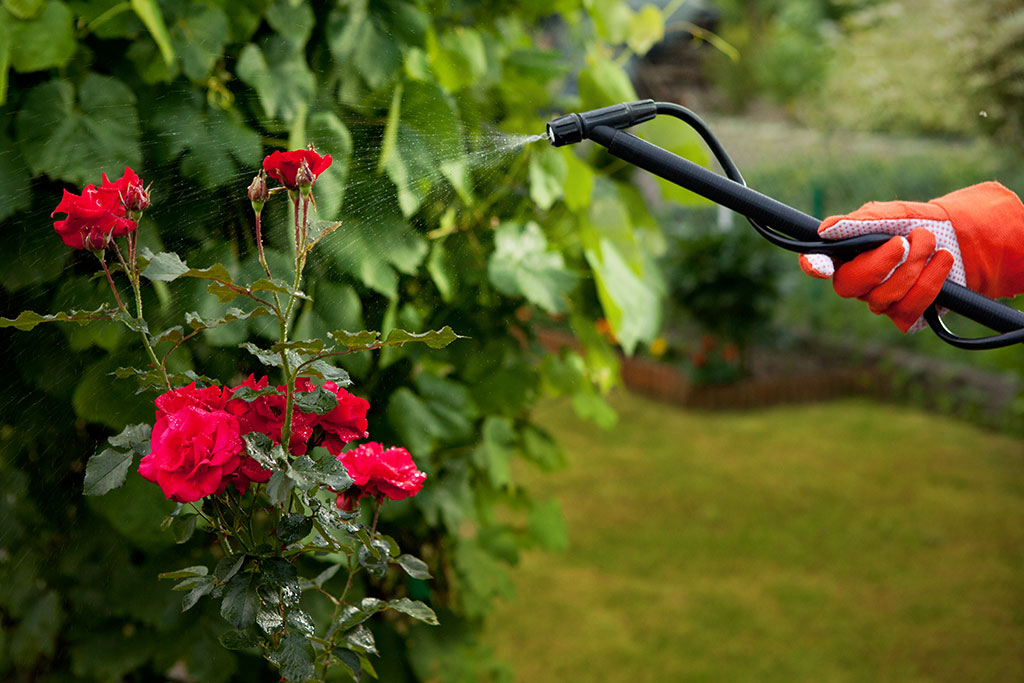
Survey your garden
Your garden can be a pretty danger zone in its own right. Inspect it often to clear it of possible hazards, including thorny weeds and dead branches, which can be sharp and brittle. Garden favorites such as foxgloves, azaleas, and daffodils can be toxic if eaten, so consider fencing in these offenders or replacing them with an herbvegetable garden if you have small children or outdoor pets. Additionally, use an app like Google Lens to identify plants in your yard and get their exact names; this info could be incredibly helpful in the event someone eats a poisonous plant. Should that happen, contact Poison Control immediately via its website or by calling its helpline at 1-800-222-1222.
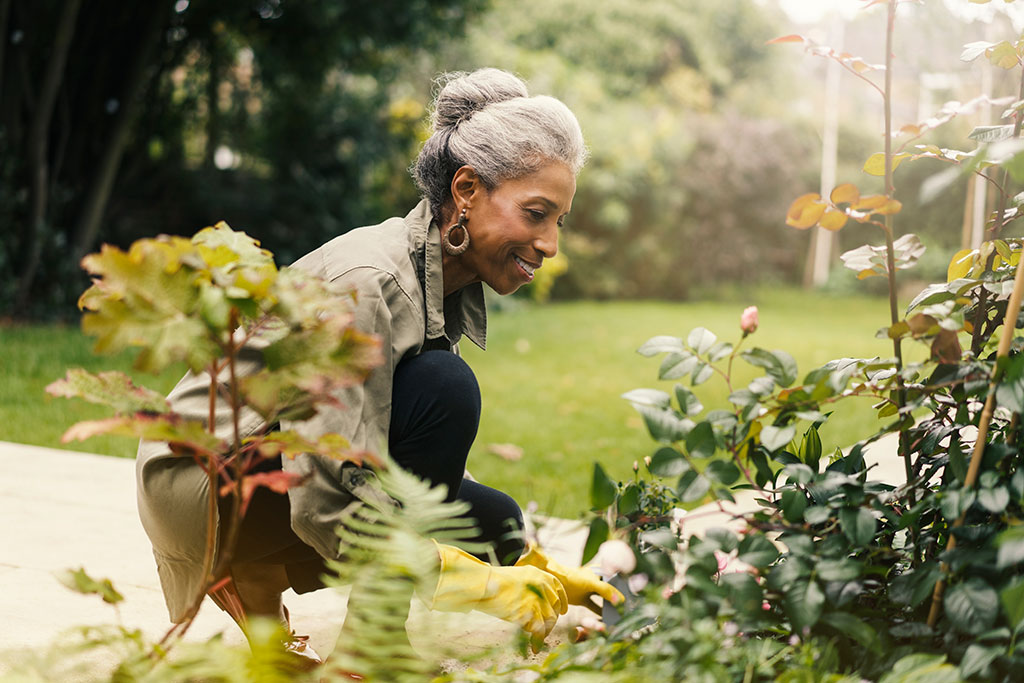
Fence it in
If you have overly friendly neighbors or adventuresome children, consider installing a tall, secure fence around your backyard. As an added precaution, you could also padlock the gate and keep the key somewhere out of your kids’ reach. Do you own a pet with poor social skills? Pen them behind a fence in your yard when hosting guests to prevent accidents—and avoid any potential legal or insurance issues.
When it comes to backyard pools, a fence is a must. Make sure to lock the gate or door to the pool area and put the key in a secure place so your little ones can swim only when an adult is present. For an extra protective measure, you may want to install an innovative pool alarm that can detect and then alert you when anyone enters the premises.
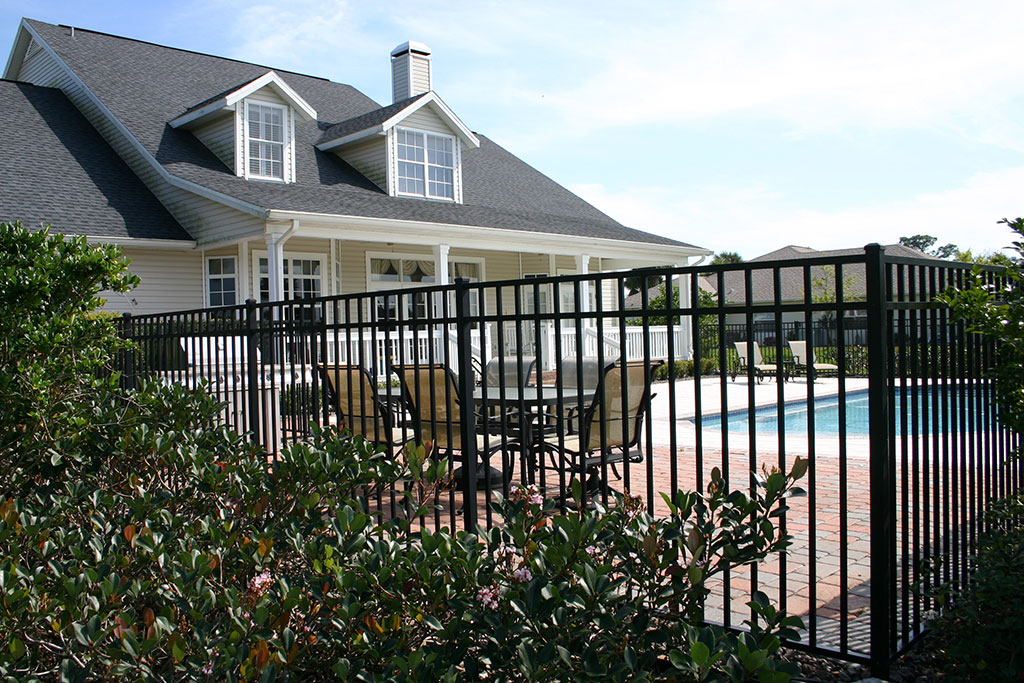
Cook safely
According to the National Fire Protection Association, about 9,500 people per year visit the ER due to grill-related burns. If you have a mobile grill, set it on a wide, nonflammable surface not under a ceiling and well away from walls, fences, and railings to reduce the risk of fire or smoke damage. Smokers and other types of grills can still be very hot even when their lids are shut, so consider making outdoor cooking areas off-limits to youngsters (and any guests with a tendency to back-seat grill). Also, keep your charcoal lighter, matches, and sharp cooking tools such as barbecue forks out of reach.
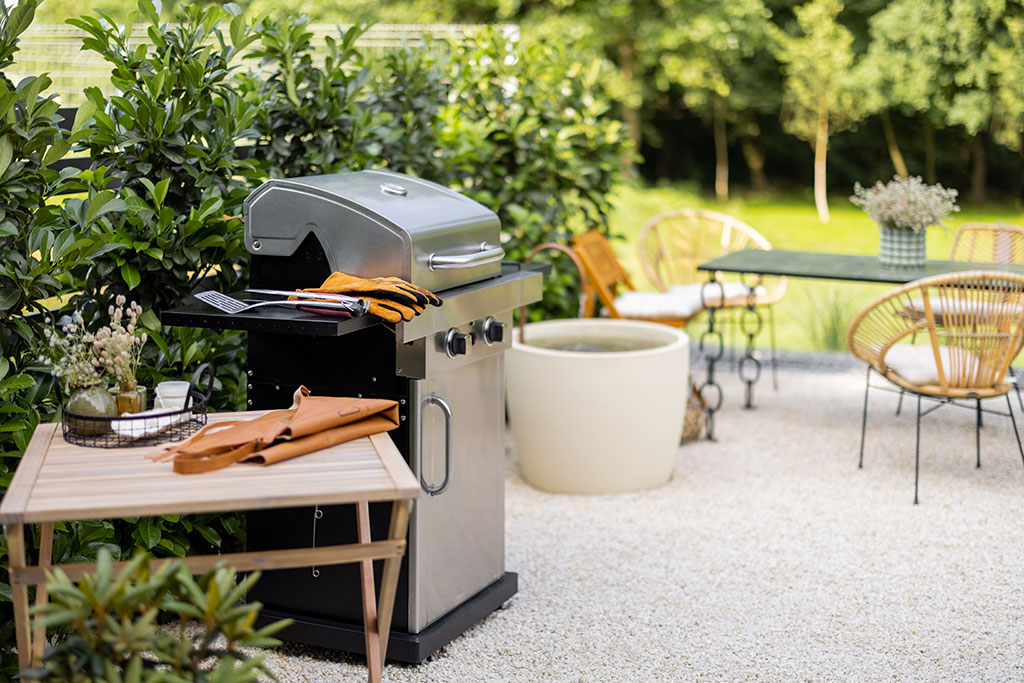
Establish safety rules
Finally, set firm guidelines for safe and fun backyard gatherings. Ensure that your children always wear well-fitted clothing and shoes before they play, and be watchful if they are swimming or engaging in an impact sport like basketball. You may also want to ban any excessive roughhousing for both kids and adults, especially near a pool. To prevent dehydration and heat exhaustion, require that everyone limits their time in direct sunlight and takes frequent water and rest breaks.
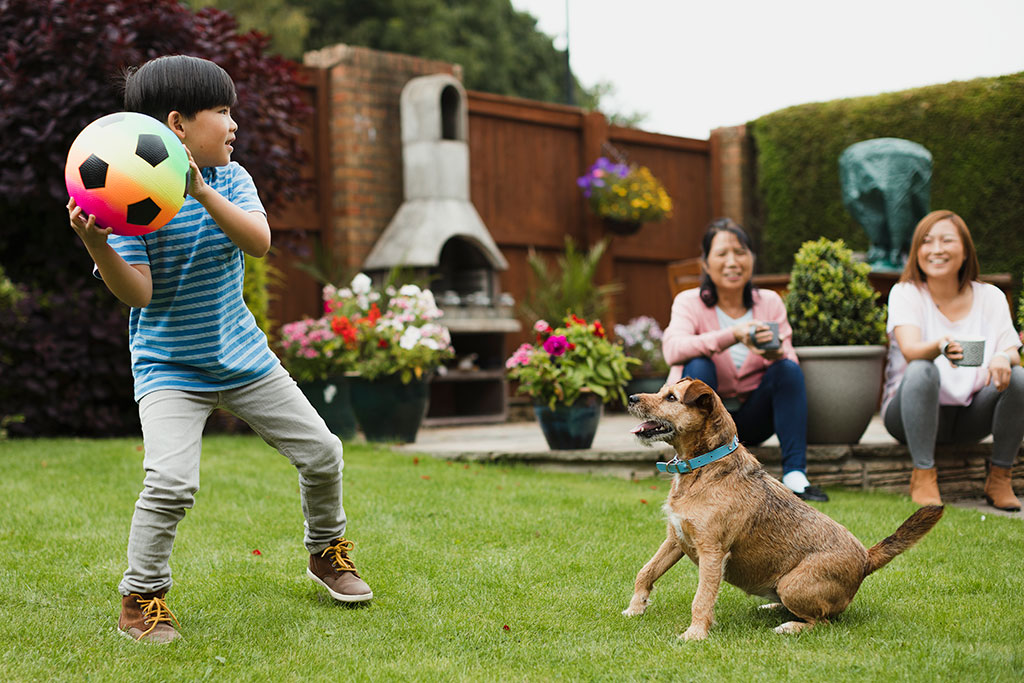
While you cannot completely eradicate all possible accidents and injuries, paying careful attention and taking precautions may sharply reduce these risks. Follow the above safety steps, and you can help make your backyard a place where wonderful memories blossom and seasonal celebrations run smoothly.
>>> Read full article>>>
Copyright for syndicated content belongs to the linked Source : AmericanLifestyleMag – https://americanlifestylemag.com/home/home-improvement/set-up-a-safe-backyard/










